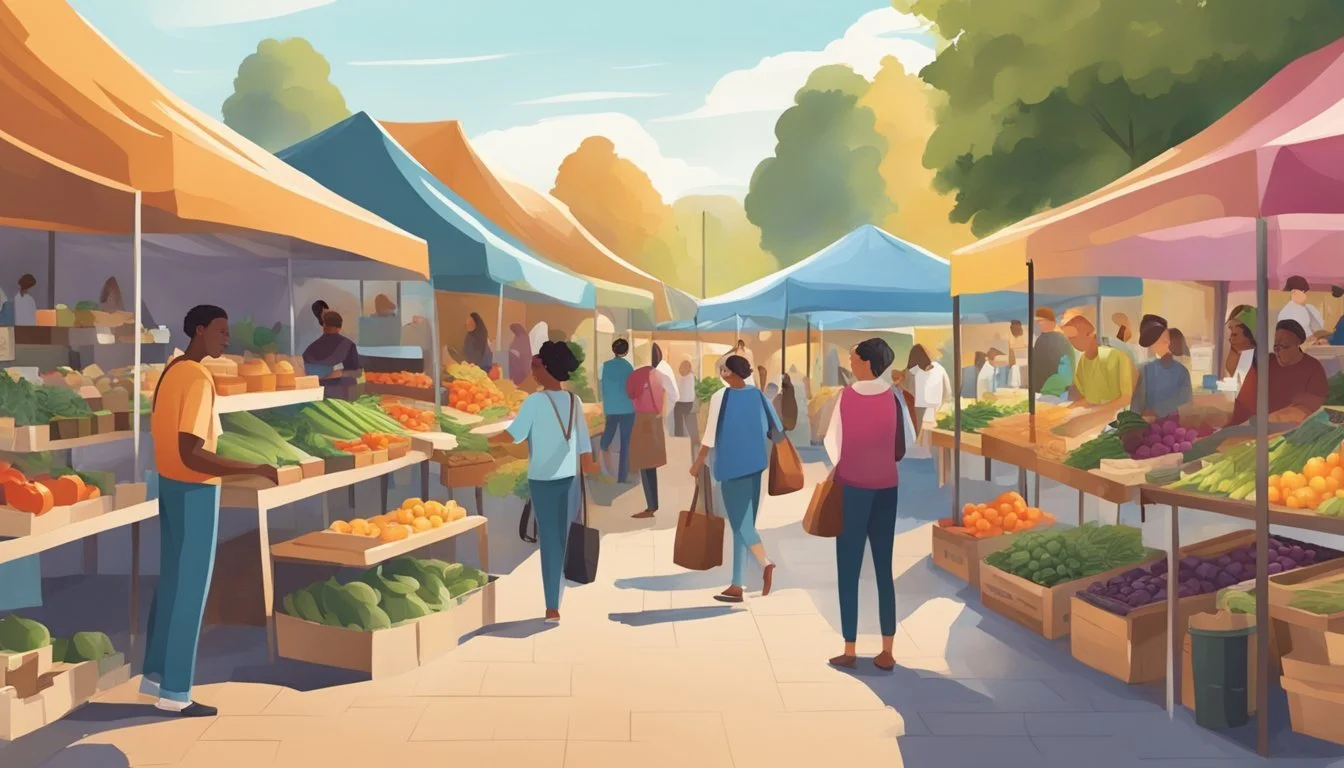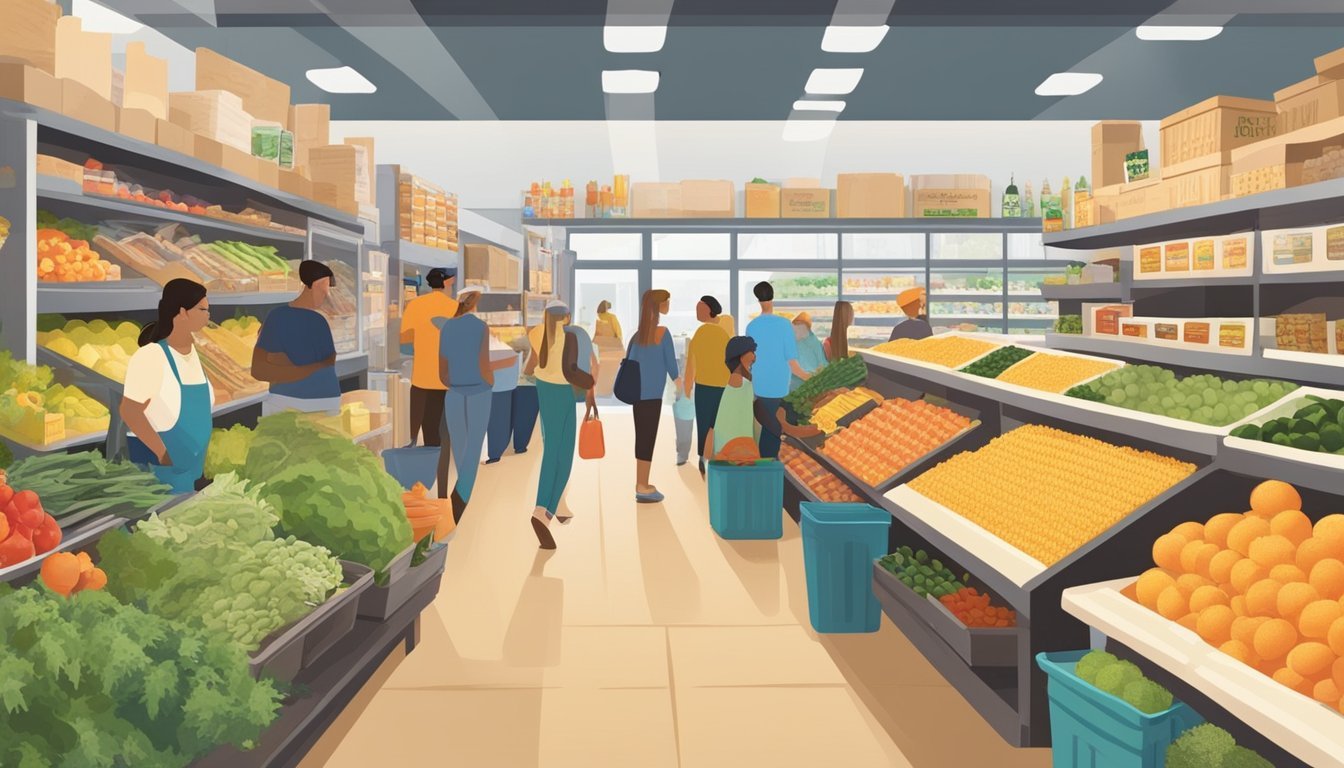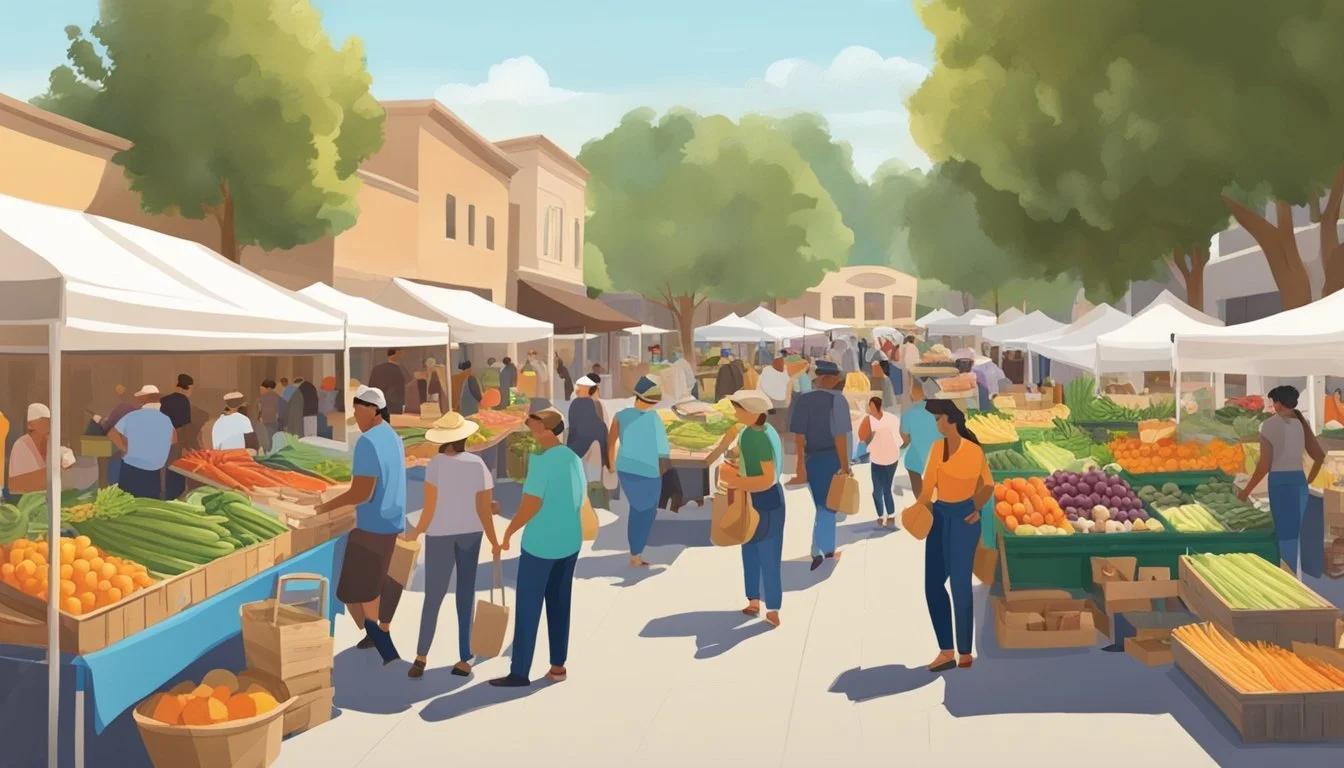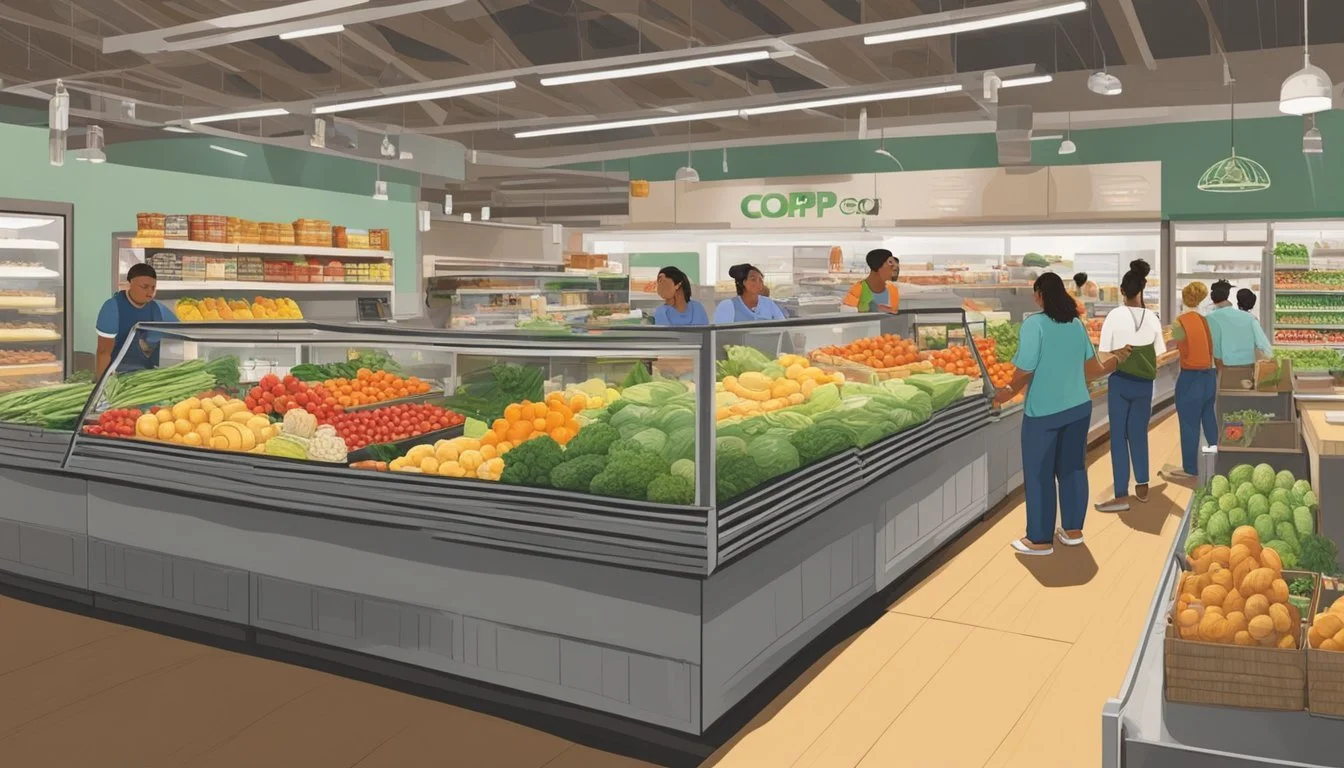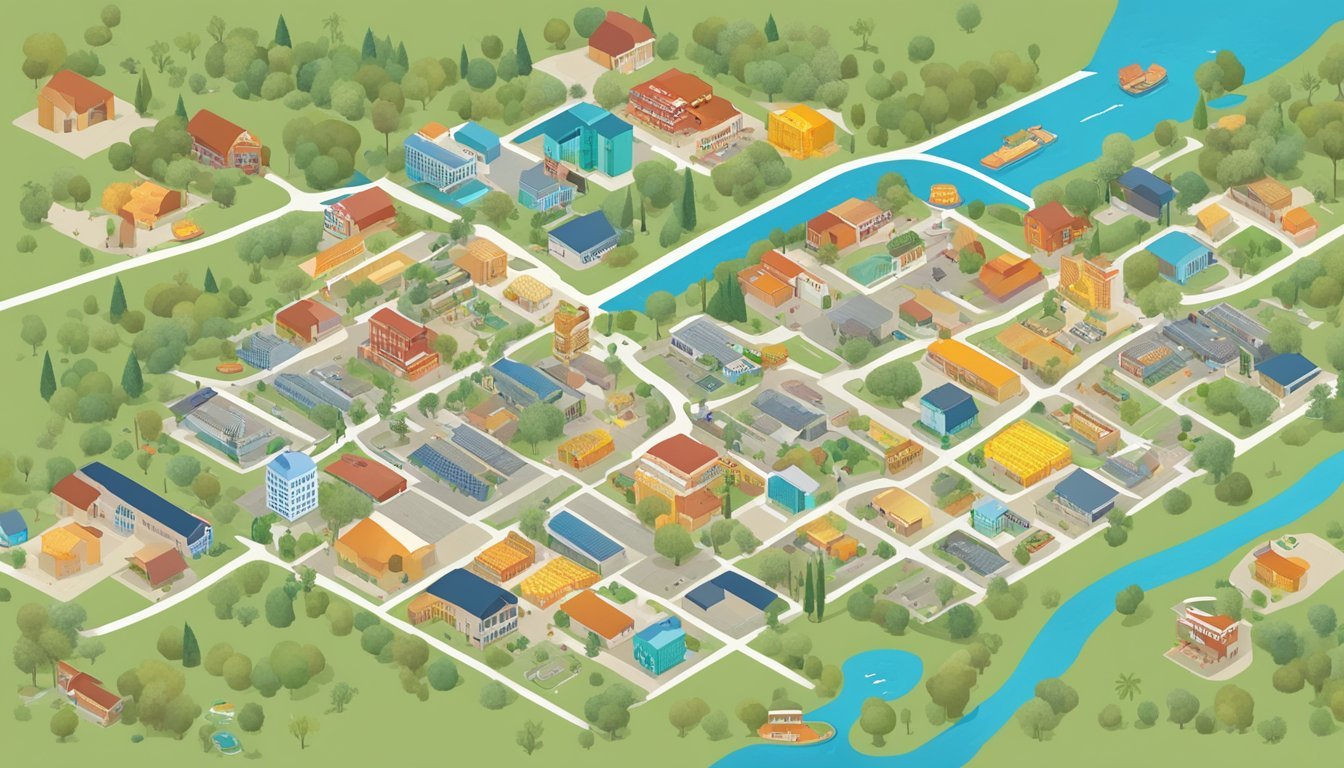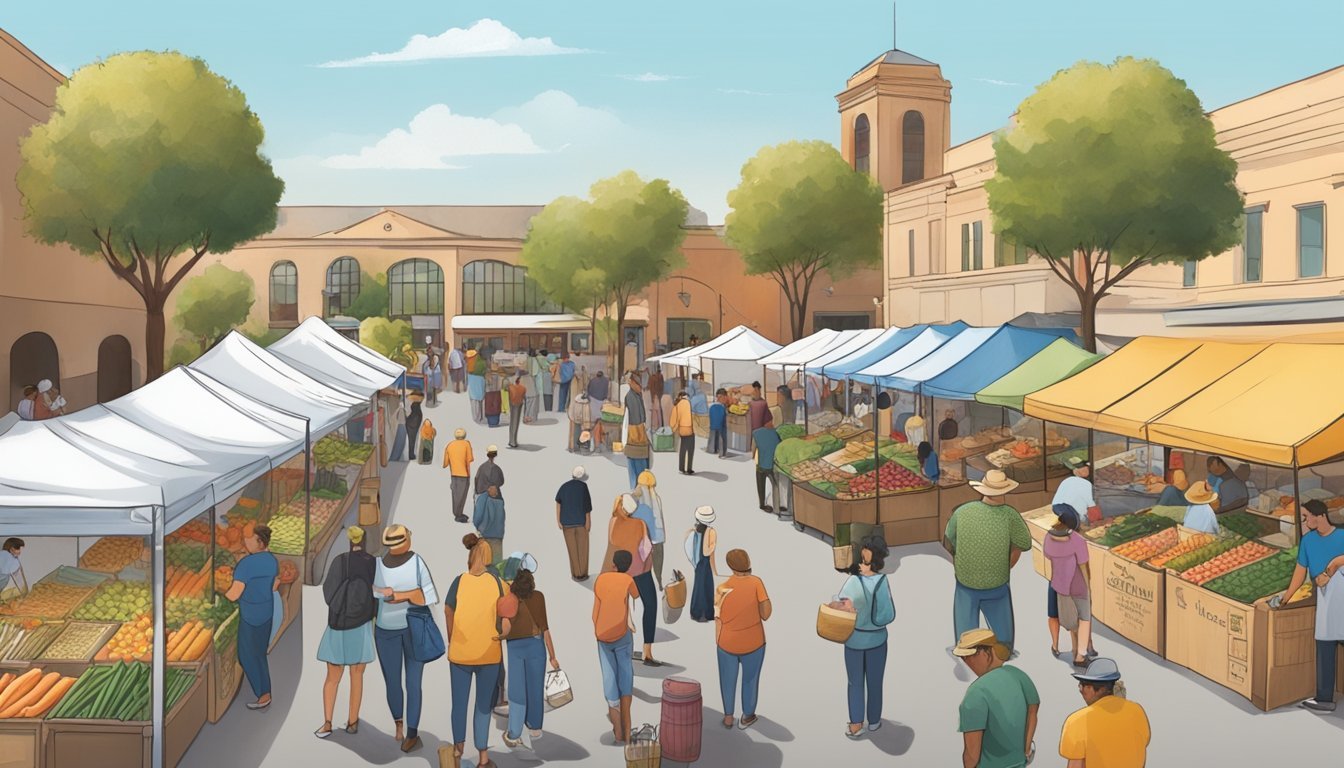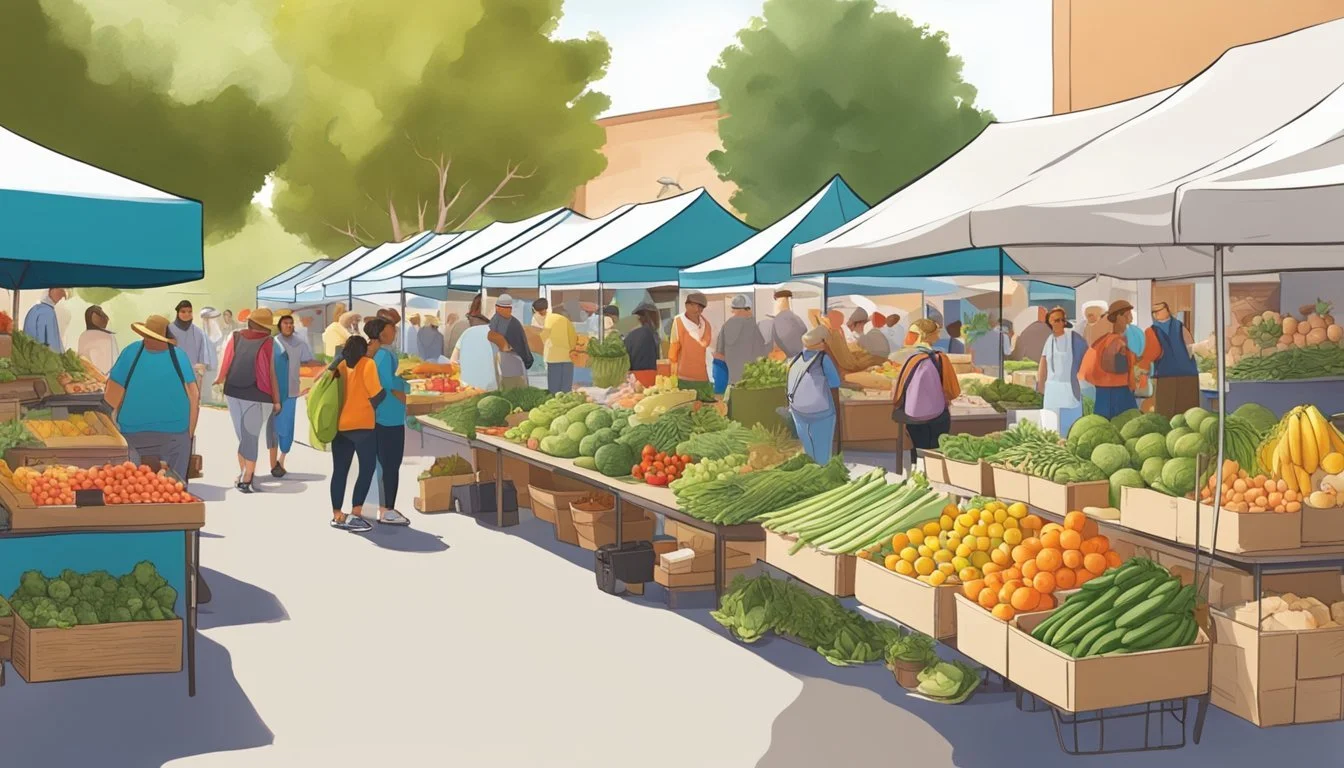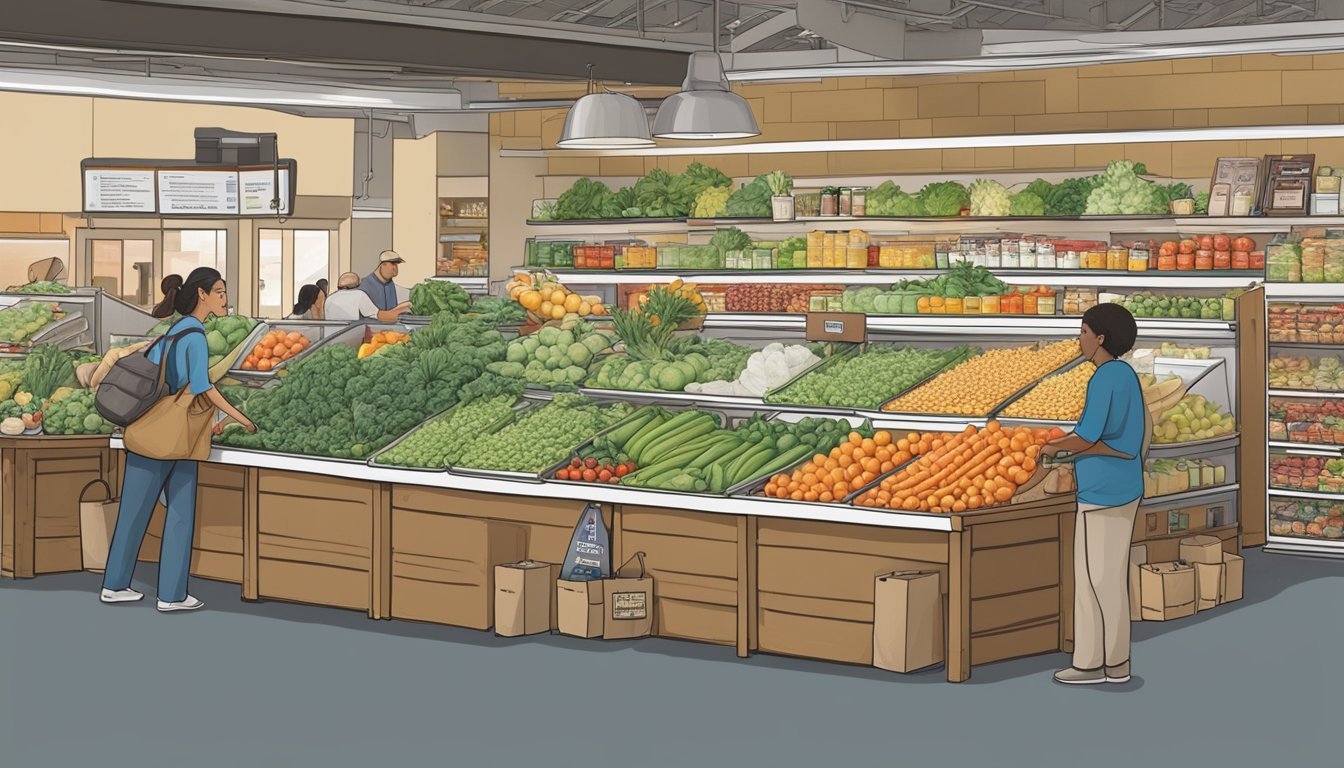Guide to Food Co-Ops in Modesto, CA
Your Essential Resource for Local Cooperative Groceries
Modesto, California, is a city that has embraced the concept of food cooperatives. Food co-ops offer an alternative to traditional grocery stores, focusing on local, organic, and sustainably produced goods, often directly sourced from farmers and producers in the surrounding area. These cooperatives operate on a membership basis but are generally open to the public, encouraging the community to participate in a localized food economy.
The presence of food co-ops in Modesto caters to the increasing demand for real food—unprocessed and untainted by artificial additives. Community members can find a variety of options, from fresh produce to bulk pantry staples, aligning with a commitment to healthier living and support for local agriculture. Beyond offering nourishment, these co-ops often serve as community hubs, providing education on food-related issues and fostering connections among like-minded individuals.
Modesto's local food co-ops are reflective of a larger movement within California, where food cooperatives have been prospering and expanding, despite the historical setback with the closure of some earlier cooperatives like the Berkeley food cooperative. The city's food co-ops reflect this resilience and innovation, ensuring residents have access to quality, affordable food, while endorsing the values of cooperation and sustainability.
What Is a Food Co-op?
A food co-op, or cooperative, is a grocery model where ownership and decision-making power resides with its members. In Modesto, CA, these establishments focus on providing member-owners with healthy food options while emphasizing local sourcing and community engagement.
Principles of Food Co-ops
Food co-ops operate on a set of core principles that distinguish them from traditional retail grocery stores. The core principles include:
Voluntary and Open Membership: Co-ops are open to all individuals willing to accept the responsibilities of membership without gender, social, racial, political, or religious discrimination.
Democratic Member Control: Operated by members who actively participate in setting policies and making decisions; one member equates to one vote.
Member Economic Participation: Members contribute equitably to the capital of their co-op and control it democratically.
Autonomy and Independence: Co-ops are autonomous self-help organizations controlled by their members.
Education, Training, and Information: Co-ops provide education and training for members to contribute effectively to the development of their co-ops.
Cooperation among Cooperatives: By working together, co-ops strengthen the cooperative movement.
Concern for Community: Co-ops work for the sustainable development of their communities through policies approved by their members.
Benefits of Joining a Food Co-op
Membership in a food co-op offers several benefits:
Healthy Food Choices: Access to a variety of fresh, locally-sourced produce and organic options.
Community Connection: A focus on local products strengthens the local economy and fosters community relationships.
Member Savings: Potential for discounts, rebates, or dividends based on patronage.
Ownership and Voice: Members influence product selection, policies, and initiatives.
Sustainability: Co-ops often prioritize eco-friendly practices and sustainable agricultural methods.
The concept of a food co-op aligns well with Modesto's community-oriented spirit, giving individuals an opportunity to access wholesome nourishment while contributing to local prosperity.
History of Food Co-ops in Modesto
Food cooperatives in Modesto reflect a microcosm of the broader co-op movement, which emphasizes collective ownership and local sourcing, knitting a fabric of community resilience through shared food resources.
Early Beginnings
Modesto's food co-op history is rooted in local agriculture, with the region being part of California's fertile central valley. In these initial stages, cooperation among farmers and local residents led to the establishment of small co-ops to pool resources and provide staple goods, ensuring fair prices and quality produce from the abundant local harvest. These co-ops likely developed informally at first, reflecting the national trend in the mid-20th-century that encouraged individuals to support each other in accessing fresh, wholesome food.
Growth of the Movement
Over the years, food co-ops in Modesto experienced gradual growth, in line with the overall trend in California. Community demand for organic and locally-sourced food bolstered these co-ops, with many of them emphasizing direct relationships with local farmers. They provided outlets for organic producers in the area, facilitating an alternative to mainstream grocery channels. Additionally, with a focus on sustainable practices, these cooperatives fostered a local ethos of environmental stewardship and health consciousness, aligning with the values of Modesto's residents.
How to Join a Food Co-op
Joining a food co-op in Modesto, CA involves a few steps, from understanding the membership process to recognizing the responsibilities and making a financial commitment. This section outlines everything a potential member needs to know to become part of a local food co-operative.
Membership Process
The first step to joining a food co-op is typically to inquire directly at the co-op's customer service desk or through their official website. The applicant will need to complete a membership application form, which may ask for personal details, agreements to co-op principles, and a commitment to member responsibilities.
Member-Owner Responsibilities
Member-owners are usually expected to participate in the governance of the co-op, which can include voting on important issues and electing the board of directors. Additionally, some co-ops require member-owners to contribute a certain number of volunteer hours or participate in community outreach programs.
Financial Commitment
A financial commitment is required to join most food co-ops. This typically includes:
A one-time refundable Capital Investment, often around $100.
A small join fee which might be non-refundable, usually around $5. Members might have the option to pay the Capital Investment in full at the time of joining or contribute in installments as they shop.
Directory of Food Co-ops in Modesto, CA
Modesto, CA offers a variety of food co-ops, providing access to organic, locally sourced, and community-focused food options. Each co-op caters to specific areas of the city, ensuring residents have access to fresh produce and goods within their vicinity.
Central Modesto Food Co-op
The Central Modesto Food Co-op is known for its commitment to real food and real farmers. It fosters a tight-knit community focused on sustainability and healthy living.
Address: Central Modesto, CA (exact address to be confirmed)
Zip Code: Applicable to Central Modesto area
North Modesto Buying Club
In North Modesto, residents benefit from a buying club where bulk purchases drive down food costs while maintaining high-quality standards.
Address: North Modesto, CA (exact address to be confirmed)
Zip Code: Applicable to North Modesto area
South Modesto Community Co-op
South Modesto Community Co-op offers a platform where members can buy a variety of organic and natural foods through a cooperative purchasing system.
Address: South Modesto, CA (exact address to be confirmed)
Zip Code: Applicable to South Modesto area
Members typically have the opportunity to participate in these co-ops either through subscription or a nominal membership fee, which helps sustain the cooperative's operations and services. Each co-op prides itself on fostering direct relationships with local producers, contributing to both the local economy and healthier lifestyles.
Guide to Co-op Services
Food co-ops in Modesto, CA offer a range of services tailored to meet the needs of their members and the local community, focusing on high-quality food, education, and community development.
In-store Offerings
Food co-ops provide a selection of local and organic groceries, often including fresh produce, bulk items, and a deli. They prioritize:
Local Produce: Fresh, seasonal fruits and vegetables from nearby farms.
Bulk Goods: Economical and eco-friendly buying options for grains, nuts, and spices.
Deli: Ready-to-eat and made-to-order food for convenient meal solutions.
Educational Workshops
They commit to consumer education through workshops and seminars that cover:
Food Preparation: Skills for cooking and preserving seasonal produce.
Healthy Eating: Guidance on nutrition and making balanced dietary choices.
Sustainable Practices: Information on eco-friendly food consumption and waste reduction.
Community Support Services
Co-ops often extend their impact by providing:
Local Supplier Networks: Supporting small businesses and family farms in the community.
Outreach Programs: Initiatives to improve food access and education within underserved areas.
Member Control: Policies and decisions shaped by the co-op's members, ensuring services meet community needs.
Shopping at a Food Co-op
Shopping at a food co-op in Modesto, CA, can offer residents access to healthy food, often at better prices due to the community-oriented nature of these establishments. They typically feature bulk purchasing options and a variety of deals.
Finding the Best Deals
Members and visitors of food co-ops can find excellent deals on a variety of products, especially if they pay attention to seasonal availability and promotions. Co-ops often provide discounts on local and organic produce, which supports the local economy and reduces environmental impact. They utilize a community-focused approach to offer competitive prices, often below traditional retail levels. Shoppers should look out for:
Weekly and bi-weekly specials on produce.
Discounts for bulk purchases.
Member-exclusive offers that can include a percentage off their shopping bill.
Understanding Bulk Purchasing
Bulk purchasing is a cornerstone of many food co-ops and serves as a way to pass savings onto the consumer. By buying larger quantities, shoppers benefit from wholesale prices, which translates into significant savings on the budget over time. Here are key aspects of bulk purchasing at a food co-op:
Shoppers can buy the exact amount they need, reducing waste.
Prices are typically lower than pre-packaged products.
Bulk bins often contain a wide range of goods, from grains and nuts to spices and teas, catering to those interested in healthy food options without unnecessary packaging.
Shopping at a food co-op encourages a more mindful approach to consumption and can help patrons make healthier food choices and better budgeting decisions.
Co-op Governance
Effective governance within food co-ops in Modesto, CA ensures that they operate smoothly, align with co-op principles, and meet legal requirements. Structures like the Board of Directors and Management Structure are crucial for oversight and operational success.
Board of Directors
The Board of Directors at a food co-op plays a pivotal role in governance, shaping the vision and strategic direction of the organization. They hold the responsibility to:
Set Policies: Developing and establishing key policies that guide the co-op's functions.
Review and Oversight: Periodically reviewing the co-op's financial health and major decisions ensures accountability.
The board typically comprises elected members from within the co-op community, often varying in size. A standard practice among Modesto's food co-ops is to have a diverse board to reflect the inclusive nature of the cooperative model.
Management Structure
Within Modesto's food co-ops, the Management Structure operates under the Board of Directors and addresses the following aspects:
Day-to-Day Operations: Managed by the co-op manager, who oversees practical aspects such as staffing, inventory, and customer service.
Volunteer Coordination: Many food co-ops rely on volunteers, and a manager ensures their efforts align with co-op needs.
The management structure may vary in complexity depending on the size and scope of the co-op but usually includes a clear hierarchy for decision-making and operational responsibilities.
Sustainability and Local Impact
Food co-ops in Modesto, CA, are key players in fostering sustainability and a positive local impact. They have a significant role in supporting local agriculture and implementing eco-friendly practices.
Supporting Local Farmers
Food co-ops in Modesto prioritize sourcing produce from local farmers, ensuring their communities benefit from fresh and seasonal harvests. By doing so, they:
Stimulate the local economy by keeping money within the community.
Promote agricultural diversity by providing a market for a variety of crops.
Local farmers find a dependable outlet for their goods in community food co-ops, which in turn:
Reduces transportation costs
Lowers carbon footprints
Ensures that consumers have access to the freshest produce possible.
Environmental Practices
Modesto food co-ops are serious about their environmental responsibilities. Their sustainability efforts include:
Reducing waste: Co-ops focus on minimizing single-use plastic packaging and encouraging the use of reusable containers.
Energy efficiency: Emphasis on sustainable energy sources and energy-resilient infrastructures makes co-ops stand out in their commitment to reducing their carbon footprint.
Eco-friendly refrigeration: Progressive co-ops are working to reduce the use of high-global-warming-potential refrigerants, curbing their environmental impact.
By integrating these practices, Modesto's food co-ops cultivate an ethos of responsibility towards the environment and community. They embody principles that encourage others to consider the long-term well-being of the planet.
Co-op Community Involvement
Food co-ops in Modesto prioritize community engagement through their dedication to volunteering opportunities and educational programs. These co-ops provide avenues for community members to connect with local food systems, emphasize sustainability, and contribute to the co-op’s mission.
Volunteering Opportunities
Volunteers are the backbone of Modesto's food co-ops, contributing to a range of activities from day-to-day operations to special events. There are numerous roles that community members can take part in, including:
Stocking Shelves: Ensuring fresh produce and products are available to customers.
Running Workshops: Leading community workshops on food-related topics.
Event Participation: Helping organize and execute community events sponsored by the co-op.
Each volunteer role not only aids the co-op but also strengthens community ties and promotes a collaborative spirit.
Educational Programmes
Modesto's food co-ops are committed to educating the public on the importance of local, sustainable food systems. They offer various programs that aim to inform and engage:
Food Education Classes: Teaching essential cooking and nutrition skills to enhance healthy eating habits.
Sustainability Workshops: Providing knowledge on sustainable practices and their impact on the environment.
These educational programs are designed to empower individuals to make informed choices about their food and foster a more resilient local food economy.
Additional Resources and Partnerships
Modesto, California, provides a variety of resources and partnerships that are integral in supporting the community with access to food, clothing, and other essential needs. From local harvest networks that connect consumers with locally-sourced food to food banks and pantries that offer crucial sustenance, these entities work collaboratively to ensure community needs are met effectively.
Local Harvest Networks
Modesto's residents can leverage Local Harvest Networks to access organic and locally-produced foods. Entities like New Mettle Farms offer an Urban Farm Club that connects the community with fresh, local produce, ensuring a sustainable food system.
New Mettle Farms Urban Farm Club: A community-oriented initiative in Modesto facilitating the consumption of local, organic produce.
Food Banks and Pantries
Several Food Banks and Pantries operate in and around Modesto to address food insecurity. Second Harvest Food Bank of San Joaquin and Stanislaus Counties has merged with local food banks to enhance its outreach and services. Ripon Inter-Faith Ministries, located nearby, provides a food pantry with accessible distribution hours.
Second Harvest Food Bank of San Joaquin and Stanislaus Counties: A major food bank serving Modesto and the surrounding areas.
Ripon Inter-Faith Ministries Food Pantry: Offers food distribution on specific days of the week, accessible to Modesto residents.
Clothing and Essentials Suppliers
Apart from food assistance, there are resources that provide Clothing and Essentials to those in need. Partnerships with such organizations ensure comprehensive support for individuals and families, extending beyond just nutritional aid.
Clothing can often be obtained through organizations like Ripon Inter-Faith Ministries, which runs a clothesline service.
Note: While there are mentions of clothing services, specific details about clothing and essentials suppliers in Modesto are limited based on the given search results and thus are not expounded upon further here.
Evaluating a Co-op's Success
When analyzing the success of a community food co-op, one should consider both quantifiable metrics and community feedback. These elements provide a comprehensive view of the co-op's performance.
Key Performance Indicators
Key Performance Indicators (KPIs) gauge a food co-op's financial health and growth. For instance:
Annual Sales Growth: Tracks year-over-year revenue increases.
Local Supplier Spending: Measures the financial support to the community by purchasing from local suppliers. A co-op spending significant amounts, such as Great Basin Food Co-op's $300,000 annually, indicates robust community engagement.
Community Reviews
Community reviews reflect the co-op's standing among its patrons. Factors include:
Customer Satisfaction: An aggregate of customer feedback about the co-op's services and products.
Social Impact: Representation of how well the co-op fosters community development, such as through an Inclusive Trade program.
Evaluating these aspects provides a multi-dimensional perspective on a food co-op's success in Modesto, CA.
Challenges and Opportunities
Food co-ops face unique challenges but also enjoy distinct opportunities as they navigate the sector's complexities. This section explores the significant hurdles and potential for growth within the Modesto, California, co-op landscape.
Addressing the Gap
Food co-ops in Modesto, CA, confront the challenge of filling the gap between local demand for organic, locally-sourced products and the supply. The community shows a preference for food that supports local farmers and sustainable practices, which co-ops are well-positioned to provide. Yet, identifying and maintaining a consistent supply to meet this demand remains a test of resilience and resourcefulness.
Potential for Expansion
There is a strong potential for expansion in the Modesto food co-op scene. The existing co-ops have an opportunity to serve as models for newer establishments, sharing insights gained from both successes and missteps. Additionally, untapped markets present in the city can lead to growth as more consumers seek out community-focused shopping experiences that co-ops offer.
State and Federal Support
In the United States, co-ops benefit from various forms of state and federal support that can be leveraged to overcome some of their challenges. This support may include educational resources, funding options, and policy frameworks conducive to cooperative development. Navigating these can improve a co-op's stability and enable it to invest in community-centric initiatives that align with both local preferences and broader American values.
Conclusion
Modesto offers a variety of options for those interested in supporting local agriculture and accessing organic and locally-sourced food. Food co-ops such as New Mettle Farms Urban Farm Club provide community-centric shopping experiences that focus on real, locally-produced goods. The city also hosts organizations like Davis Park Church of Christ Food Pantry, which serves the community through food assistance services.
Local food co-ops have a notable economic impact by promoting products from diverse companies and contributing significant amounts to local suppliers, as emphasized by programs such as Co+op Deals and the successes of Great Basin Food Co-op and North Coast Food Co-op.
Residents of Modesto and its surrounding areas are encouraged to explore these cooperative and charitable food supply options. By doing so, they foster a sense of community, support local economies, and ensure that everyone can access quality food sources.
Key Features of Modesto Food Co-ops Local and Organic Produce Community Support and Involvement Economic Impact on Local Suppliers

